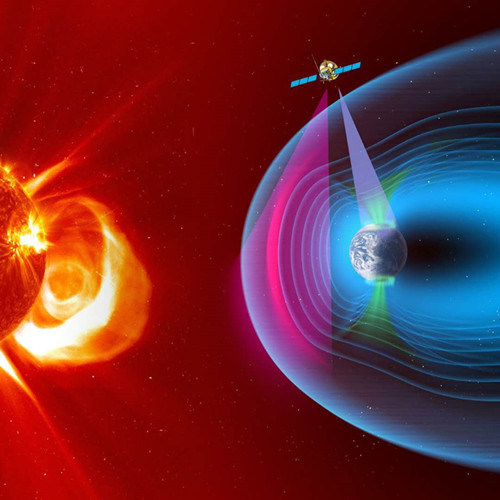

In late March 2019, the Solar wind Magnetosphere Ionosphere Link Explorer, or SMILE, a China-ESA joint mission, was adopted for implementation by the European Space Agency (ESA). The adoption, a milestone event, signifies start of the engineering phase of a joint scientific mission to study the interaction between the solar wind and the Earth’s magnetosphere. The mission will be launched in 2023 and will be in orbit and operational for 3 years.
Orchestrated by the Chinese Academy of Sciences (CAS) and ESA, the mission will be another living example of China-ESA cooperation in space science, following the success of the Geospace Double Star mission which flew between 2003 and 2008. Unlike the Double Star Mission, which started out as a China-only project with added contribution by ESA, the SMILE mission is envisaged from the start as a joint ESA-China mission with the two sides working together from mission definition, joint calls for proposals and joint selection and mission study all the way to mission implementation. In this sense, it ushers in a new way of mission cooperation.

Satellite SMILE to solve puzzles of space weather. [Image by NSSC, CAS]
In June 2015, the SMILE mission was selected by the CAS-ESA joint selection committee from 13 proposals, which was followed by a joint mission study phase in Nov 2016.
"The SMILE Mission will focus on solar-terrestrial interaction and get an overall image of interaction between solar wind and the magnetosphere for the first time, by using the Soft X-ray Imager (SXI) and Ultra-Violet Imager (UVI), and also in situ measurements by using a MAGnetometer (MAG) and a Light Ion Analyzer (LIA), and will play an indispensible role in predicting and mitigating space weather disasters," said Prof. Wang Chi, the Chief Scientist of the SMILE mission and Director General of the National Space Science Center (NSSC).
The SMILE mission attracts participation by the advanced research institutions in the field of space weather. CAS is responsible for the spacecraft platform, spacecraft testing, on board operations, S-band ground station and X-band station support, as well as two instruments, the Light Ion Analyser (LIA) and the Magnetometer (MAG). ESA is responsible for the payload module, spacecraft test facilities, launcher, launch campaign, the X-band ground station and S-band station support; science mission operations will be jointly handled by ESA and CAS. SXI is provided by the United Kingdom Space Agency and UVI will be provided by the Canadian Space Agency.
SMILE has been included and sponsored by the Strategic Priority Program on Space Science (II). Other missions in the Program are now forging ahead steadily as international cooperation in the Einstein-Probe (EP), the Advanced Space-borne Solar Observatory (ASO-S), and the Gravitational Wave Electromagnetic Counterpart All-sky Monitor (GECAM).
Source: CAS